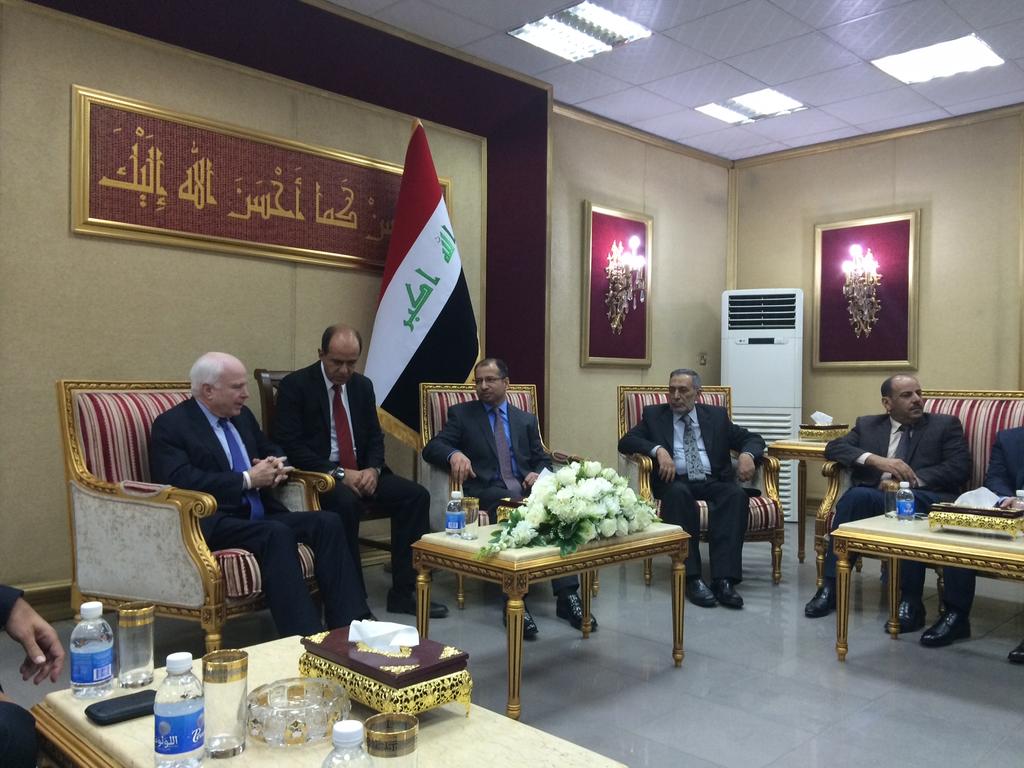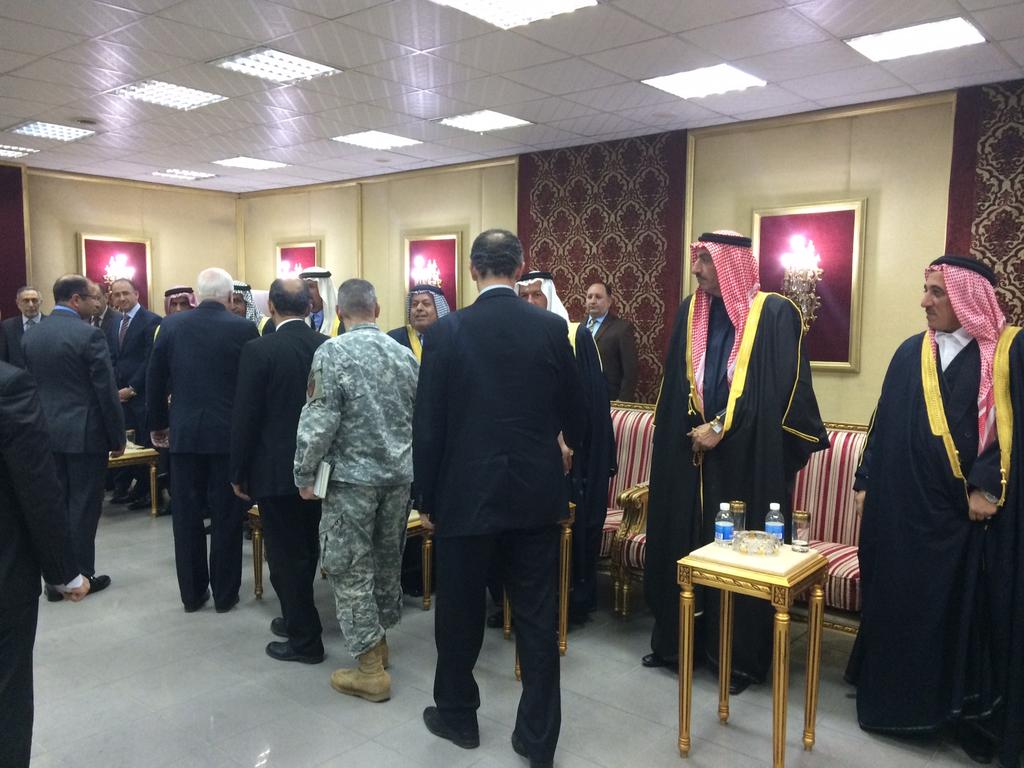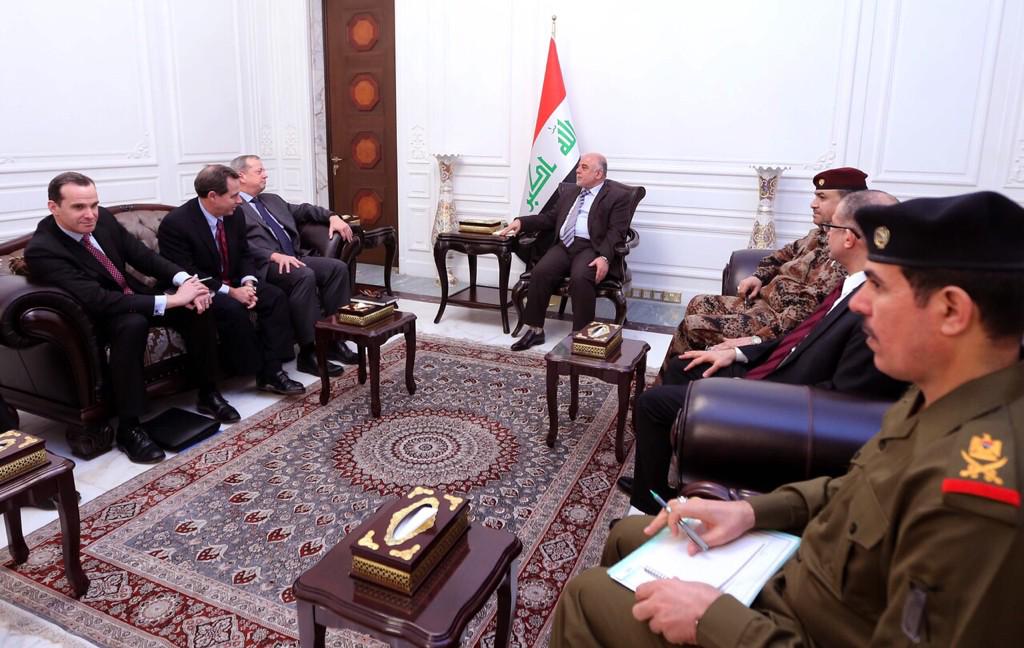In the Best Supporting Actor category, two of the nominees are Edward Norton and Mark Ruffalo.
So it's Hulk versus Hulk.
Who are you rooting for?
I've seen both films and I really like Ed but I think I would go with Mark just because I believe he was robbed last time around when he got a nomination but did not win for The Kids Are Alright.
So Mark's who I'm going to root for.
Here's C.I.'s "Iraq snapshot:"
The outgoing US Secretary of Defense Chuck Hagel spoke at Fort Bliss in El Paso, Texas today.on Thursday.
Secretary of Defense Chuck Hagel: Every day is different, every year is different, every day defines something. Yesterday is gone, we can't do anything about yesterday. We can't do a hell of a lot about today, actually. We can do something about tomorrow.
And how we define tomorrow, how we define our institutions, how do we
define everything that we know is right and we believe in, and how do we
prepare our institutions and the next class and the next class and the
next group of sergeants majors, those who will have responsibilities
that will come after you, how you prepare them, that also is part of
responsibility. And that also feeds into judgment, because that,
ultimately, is one of the greatest responsibilities of leadership is
preparing an institution for the future.
We have been trying to do that the last couple of years in Washington,
since I have been secretary of defense, not only in the technological
edge of assuring that our technical capabilities do not erode as we have
had to deal with severe budget issues over the last couple of years,
which you all have been part of and had to maneuver and engage and
navigate, and you've done it incredibly well, but also other demands and
factors and defining dynamics in a world that is now partly intimidated
by the -- by the immediacy of everything. The immediacy of judgments.
The immediacy of we want an answer now.
And there's where judgment especially comes into play. I have
believed, and as I worked my way along the last 48 years in different
jobs, that especially today, but I think it's probably been true through
history, that sometimes there are not immediate answers to problems.
We Americans contest that, we fight that: Well, of course there's an
answer to the problem. We'll fix it. Let's go to war. Let's commit
troops. Or let's present a policy to address that problem. There's an
answer to it.
Many times, we find that the problem, the challenge, the issue, can
only be solved through an evolving process of solutions, ultimately
getting to the high ground of resolution.
That's -- that's the kind of world we're living in.
Look at the Middle East today. The Middle East is captive to being now
in the grips of historical differences, tribal, religious, ethnic.
That's not the only challenge and that's not the only force that's
driving Islamic fundamentalism and terrorism in these -- these
ideologies that have nothing to do with religion --that are brutal,
murderous, irresponsible.
That's not religion. But yet, the divisions and the lines of those
divisions as to how they started and how they perpetuate, much rooted in
religious or ethnic differences.
There's not one answer to that. I think there are evolving solutions,
which we are helping play a role in that, but we can't fix that. The
United States of America can't fix that problem. No country outside
that region can fix that problem. It will be the people themselves who
will ultimately have to come to some resolution through a process of
evolving solutions to fix it.
The world will be presented more and more with those kinds of issues,
where responsible leadership will always end up having to rely on
responsible judgment, and how do we deal with these problems?
Jon Harper (Stars and Stripes) notes, "Hagel’s remarks came at a time when America is again deploying troops to Iraq
to try to defeat insurgents. The U.S. military has also been injected
into Syria’s civil war, waging an air campaign and planning to train
moderate Syrian rebels to take on the Islamic State terrorist group and
other radical factions. Still, the Iraqi government and some in Congress
are calling for the Obama administration to step up American military
involvement in the conflict against the militants."
In Wednesday's snapshot, we covered some of the Iraqi government's critiques of and opposition to the US' military involvement in Iraq. Mustafa Habib (Niqash) has written another important report, this one focusing on the distance growing between the governments of Iraq and the United States:
The US has been leading an international alliance
against the extremist Islamic State group in Iraq. But locals say the US
is not doing enough. Politicians in Baghdad recently led a call to
scrap the strategic agreement the two countries have had since 2008.
Could this be a symptom of Iran's ever-growing influence in Iraq?
Four months have passed since the US began to work with an
international alliance to confront the threat of the extremist group,
the Islamic State, in Iraq. Yet for many locals, there don’t seem to be
any obvious results.
The Islamic State, or IS, group still has control of over
around 70 percent of the province of Anbar as well as other cities, like
Tikrit and Baiji in Salahaddin province as well as parts of Diyala and
Kirkuk.
As a result of what appears to be something of a
stalemate, some Iraqi politicians have started to question an essential
agreement between Iraq and the US, known as the Strategic Framework Agreement
for a Relationship of Friendship and Cooperation between the United
States and the Republic of Iraq. It’s known as the SFA for short.
As the US Embassy in Iraq’s website describes the agreement, which was signed in November 2008, it, “guides our overall political, economic, cultural, and security ties with Iraq”.
Section 3 of the SFA describes the close cooperation
between the two signatories on defence and security in Iraq. Yet slowly
but surely Iraqis are starting to question: Why can’t a superpower like
the US defeat the IS group?
And last week Iraqi MPs began to push for answers, with
some even suggesting a cancellation of the SFA. Among them was Alia
Nassif, an MP for the ruling State of Law party, a Shiite
Muslim-majority party headed by both the current and former Prime
Ministers of Iraq. “Iraq does not benefit from the security agreement
with the US,” a statement from Nassif’s office said. “On the contrary
the agreement has become a heavy burden on us because the US has not
fulfilled one of its stated obligations – strengthening and supporting
the democratic system in Iraq. The IS group threatens the whole
existence of the Iraqi state.”
As the critiques and slams grow louder, it creates the space for Nouri
to return. And there are those on Arabic social media who don't see the
critiques of Haider al-Abadi as 'spontaneous' but as part of an
arrangement the current prime minister has with previous prime minister
Nouri al-Maliki that will allow him to return to power.
Some argue this supposed plan is the reason Haider's refused to demand
Nouri vacate the prime minister residence. Haider became prime minister
in August, yet all these months later he still does not live in the
home of the prime minister, all these months later Nouri continues to
reside there and refuses to leave.
The month Haider became prime minister is the same month US President
Barack Obama began ordering war planes to bomb Iraq. Like Haider,
Barack's accomplished very little.
At the Pentagon on Thursday, an Air Force press briefing
was held with the Secretary of the Air Force Deborah Lee James and the
Chief of Staff of the Air Force General Mark A. Welsh III taking
questions. We'll note this exchange.
Q: Do you
think that there's just too much emphasis at the moment on the air part
of the equation, that everyone thinks you're going -- from the air, you
can defeat ISIS, you can defeat Al Qaeda in Yemen, when defeat may not
be what is possible from the air?
GEN. WELSH: No, I don't think, speaking specifically to ISIS, that the -- that the DOD approach is not to defeat ISIS from the air. The intent is to inhibit ISIS, to attrite ISIS, to slow ISIS down, to give a ground force time to be trained because the ground force will be required.
You -- you don't dictate end states from the air. You can't control territory. You can't influence people. You can't maintain lines of control after you've established them. That will take a ground force -- in this case, a coalition ground force that's being trained now to try and make that effort, and we'll support it from the air.
GEN. WELSH: No, I don't think, speaking specifically to ISIS, that the -- that the DOD approach is not to defeat ISIS from the air. The intent is to inhibit ISIS, to attrite ISIS, to slow ISIS down, to give a ground force time to be trained because the ground force will be required.
You -- you don't dictate end states from the air. You can't control territory. You can't influence people. You can't maintain lines of control after you've established them. That will take a ground force -- in this case, a coalition ground force that's being trained now to try and make that effort, and we'll support it from the air.
You don't dictate end states from the air.
. . . the DOD approach is not to defeat ISIS fromt he air.
Over a billion dollars has been spent on Barack's 'plan' since August
and it's accomplished nothing of merit and even the Defense Dept is no
longer propping it up.
The 'plan' was for these air bombings to continue and, in February, for the Iraqi military to attempt to retake Mosul.
Now it's thought that this would be too soon, that the Iraqi military is not ready yet. When will it be ready?
Haider al-Abadi started this week making comments about how, in three years, the Iraqi military might be ready.
Might.
So these bombings will just continue and the billions will just keep adding up?
There is no plan so it should come as no surprise that the White House also failed to come up with a backup plan.
Two incidents of violence garnered Twitter attention on Thursday.
And on the topic of violence, the Iraqi government announced 16 Sunni corpses were discovered in a mass grave in Kobachi. Sameer N. Yacoub (AP) rushes to blame the Islamic State by quoting a mayor of a nearby city. AP presents no qualifiers or questions. Saif Hameed, Ned Parker and Gareth Jones (Reuters) note
the mayor's claim but also note the area was liberated in November and
"Shi'ite militias have also been accused of atrocities when retaking
land from Islamic State, which swept across northern Iraq last summer as
the Iraqi army collapsed."
Iraqi Spring MC notes 1 corpse was discovered in Basra (blindfolded with shots to the head), a border police captain was killed in Muqdadiyah, an Aden roadside bombing left six people injured or dead, the Iraqi military's bombing of the residential neighborhood's in Falluja left 2 civilians dead and thirteen more (including three children) injured, and the corpse of the brother of an Iraqi journalist who was kidnapped was discovered outside Samarra. Alsumaria reports a Heer home bombing left 3 women dead. National Iraqi News Agency notes 1 corpse was discovered dumped in the streets of Baghdad.
Al Jazeera adds:
Sources told Al Jazeera that at least 16 Peshmerga soldiers were killed on Thursday trying to repel an ISIL attack on the Mosul Dam in Nineveh province.
The dam, located on the Tigris river, provides electricity to northwestern province of Anbar, which is under ISIL's control.
In another attack, seven fighters from militias fighting against ISIL in Diyala Province were killed in the town of al- Mansuriya.
In news of other attacks, Paul McLeary (Defense News) reports, "The 300 US soldiers and Marines at al Asad air base in Iraq's Anbar province continue to see mortar fire directed at their positions, with six more mortar rounds landing on the sprawling complex last week." As those US troops remain under attack, National Iraqi News Agency notes Anthony H. Cordesman is predicting that the number of US troops in Iraq by the end of 2015 will be around 9,000 to 15,000.
Meanwhile Margaret Griffis (Antiwar.com) counts 134 violent deaths across Iraq on Thursday with twenty-three more people injured.
In other news, Column Lynch (Foreign Policy) reports the White House's ambassador-at-large for War Crimes is stepping down and notes:
The administration has largely pressed the case for accountability for crimes selectively, passionately promoting the international prosecution of political rivals, from the late Libyan leader Muammar al-Qaddafi to Syrian President Bashar al-Assad, while seeking to protect American military personnel and allies like Israel from international scrutiny for their own alleged crimes, according to rights advocates. The Obama Administration has made it clear it has no intention of formally joining the International Criminal Court, arguing that a push for Senate ratification of the treaty establishing the Hague-based court would be destined for defeat.
The administration’s standing on such issues has also been tainted by its refusal to punish CIA operatives involved in the torture of detainees or to close down the U.S. detention facility at Guantanamo Bay, a source of widespread outrage around the world.
Iraqi Spring MC notes 1 corpse was discovered in Basra (blindfolded with shots to the head), a border police captain was killed in Muqdadiyah, an Aden roadside bombing left six people injured or dead, the Iraqi military's bombing of the residential neighborhood's in Falluja left 2 civilians dead and thirteen more (including three children) injured, and the corpse of the brother of an Iraqi journalist who was kidnapped was discovered outside Samarra. Alsumaria reports a Heer home bombing left 3 women dead. National Iraqi News Agency notes 1 corpse was discovered dumped in the streets of Baghdad.
Al Jazeera adds:
Sources told Al Jazeera that at least 16 Peshmerga soldiers were killed on Thursday trying to repel an ISIL attack on the Mosul Dam in Nineveh province.
The dam, located on the Tigris river, provides electricity to northwestern province of Anbar, which is under ISIL's control.
In another attack, seven fighters from militias fighting against ISIL in Diyala Province were killed in the town of al- Mansuriya.
In news of other attacks, Paul McLeary (Defense News) reports, "The 300 US soldiers and Marines at al Asad air base in Iraq's Anbar province continue to see mortar fire directed at their positions, with six more mortar rounds landing on the sprawling complex last week." As those US troops remain under attack, National Iraqi News Agency notes Anthony H. Cordesman is predicting that the number of US troops in Iraq by the end of 2015 will be around 9,000 to 15,000.
Meanwhile Margaret Griffis (Antiwar.com) counts 134 violent deaths across Iraq on Thursday with twenty-three more people injured.
In other news, Column Lynch (Foreign Policy) reports the White House's ambassador-at-large for War Crimes is stepping down and notes:
The administration has largely pressed the case for accountability for crimes selectively, passionately promoting the international prosecution of political rivals, from the late Libyan leader Muammar al-Qaddafi to Syrian President Bashar al-Assad, while seeking to protect American military personnel and allies like Israel from international scrutiny for their own alleged crimes, according to rights advocates. The Obama Administration has made it clear it has no intention of formally joining the International Criminal Court, arguing that a push for Senate ratification of the treaty establishing the Hague-based court would be destined for defeat.
The administration’s standing on such issues has also been tainted by its refusal to punish CIA operatives involved in the torture of detainees or to close down the U.S. detention facility at Guantanamo Bay, a source of widespread outrage around the world.
Iraq and Afghanistan Veterans of America issued the following on Thursday:
New York, N.Y. (January 15, 2015) – American Sniper,
the biopic of Iraq war veteran U.S. Navy Seal Chris Kyle, earned six
Oscar nominations this morning, including nods for Best Picture and Best
Actor for Bradley Cooper. The film, based on Kyle’s New York Times
best-selling biography of the same name, offers a gripping portrayal of
the Iraq War, the struggles of post-traumatic stress and the impact of
war on military families.
“IAVA congratulates the American Sniper team on this historic achievement. American Sniper is a new war film classic and maybe the greatest modern war film of our time. Its power is in its focused simplicity that accurately portrays the heroism, horror and tragedy that is the Iraq War,” said IAVA CEO and Founder Paul Rieckhoff, who attended the New York City premiere in December. “About 2.8 million men and women have served in the post-9/11 wars, yet there is still a clear military-civilian divide in this country. But director Clint Eastwood – an Army veteran himself who used the G.I. bill to go to college – got it right. We hope all Americans will see the film, join in the conversation, and learn more about veterans’ issues at iava.org.”
American Sniper was nominated for an Oscar in the following categories:
The film depicts extremely violent war imagery. Veterans in need of community are encouraged to explore IAVA’s member-based programs or call the Veteran Crisis Line at 800-273-8255 to be connected with qualified responders.
The 87th annual Academy Awards will be held on Feb. 22, 2015, at the Dolby Theatre in Hollywood, Los Angeles. The film opens in theaters nationwide tomorrow.
“IAVA congratulates the American Sniper team on this historic achievement. American Sniper is a new war film classic and maybe the greatest modern war film of our time. Its power is in its focused simplicity that accurately portrays the heroism, horror and tragedy that is the Iraq War,” said IAVA CEO and Founder Paul Rieckhoff, who attended the New York City premiere in December. “About 2.8 million men and women have served in the post-9/11 wars, yet there is still a clear military-civilian divide in this country. But director Clint Eastwood – an Army veteran himself who used the G.I. bill to go to college – got it right. We hope all Americans will see the film, join in the conversation, and learn more about veterans’ issues at iava.org.”
American Sniper was nominated for an Oscar in the following categories:
- Best Picture
- Best Actor
- Best Sound Editing
- Best Adapted Screen Play
- Best Film Editing
- Best Sound Mixing
The film depicts extremely violent war imagery. Veterans in need of community are encouraged to explore IAVA’s member-based programs or call the Veteran Crisis Line at 800-273-8255 to be connected with qualified responders.
The 87th annual Academy Awards will be held on Feb. 22, 2015, at the Dolby Theatre in Hollywood, Los Angeles. The film opens in theaters nationwide tomorrow.
 Toby Harnden
Toby Harnden


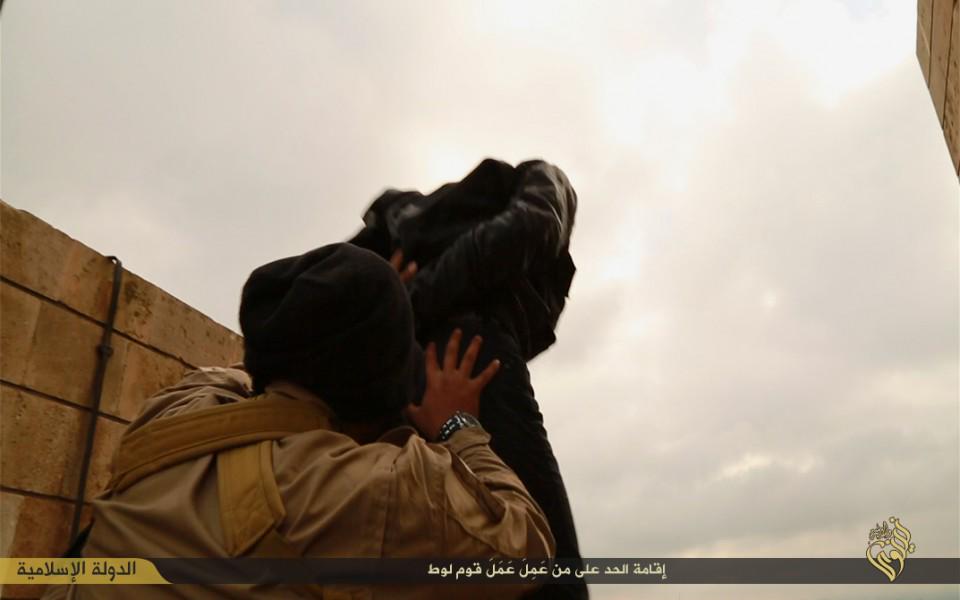
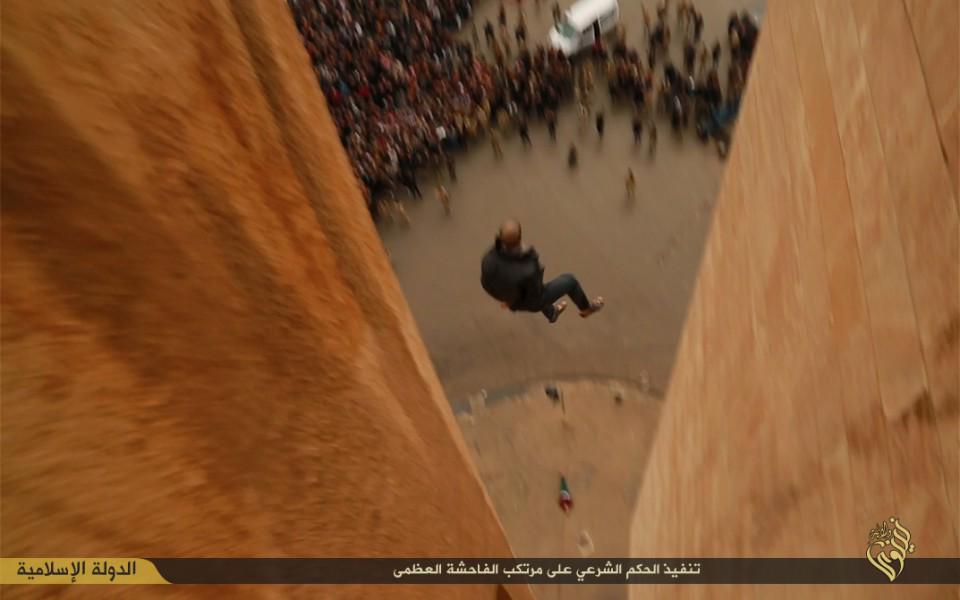
 Zaid Benjamin
Zaid Benjamin










 Mudar Zahran
Mudar Zahran









 Ariên
Ariên

 Hamo
Hamo


